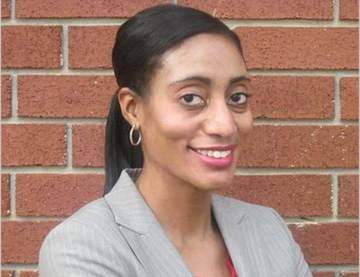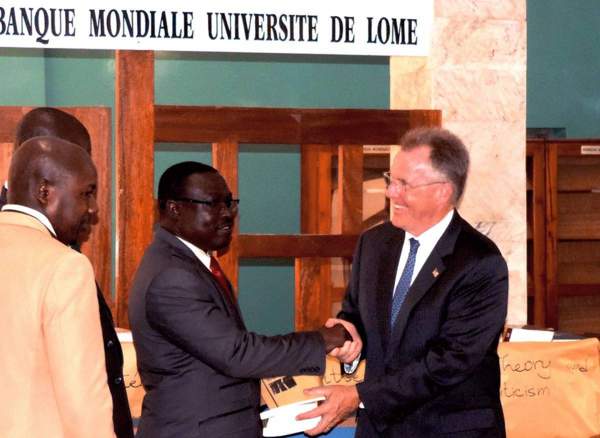
If a student at Texas State University wants to conduct research for an essay on Emily Dickinson, he or she might simply go to the library and check out a book. In contrast, a student at the University of Lomé could find few books on this and many other subjects in English literature, and the books available often had missing pages. Imagine turning to an important section, one necessary for your research, only to discover that the paragraph you need has been ripped out. “It was very difficult for students to write their dissertations for American literature,” said Dr. Komi Begedou.
Since the University of Lomé, Dr. Begedou’s home institution, lacked the resources and opportunities he was seeking, he applied for and was accepted into the competitive Fulbright Scholarship Program. Founded in 1946, the Fulbright Scholarship Program sponsors U.S. and foreign students and teachers in a diverse exchange program in an effort to facilitate greater understanding between cultures. Dr. Begedou came to Texas State University in 2014 to work with the faculty in the English Department in order to further his knowledge of American literature and culture.
“The people at Texas State were very kind and supportive,” Dr. Begedou said, but he was also impressed with the access to critical resources for students and faculty at Texas State.
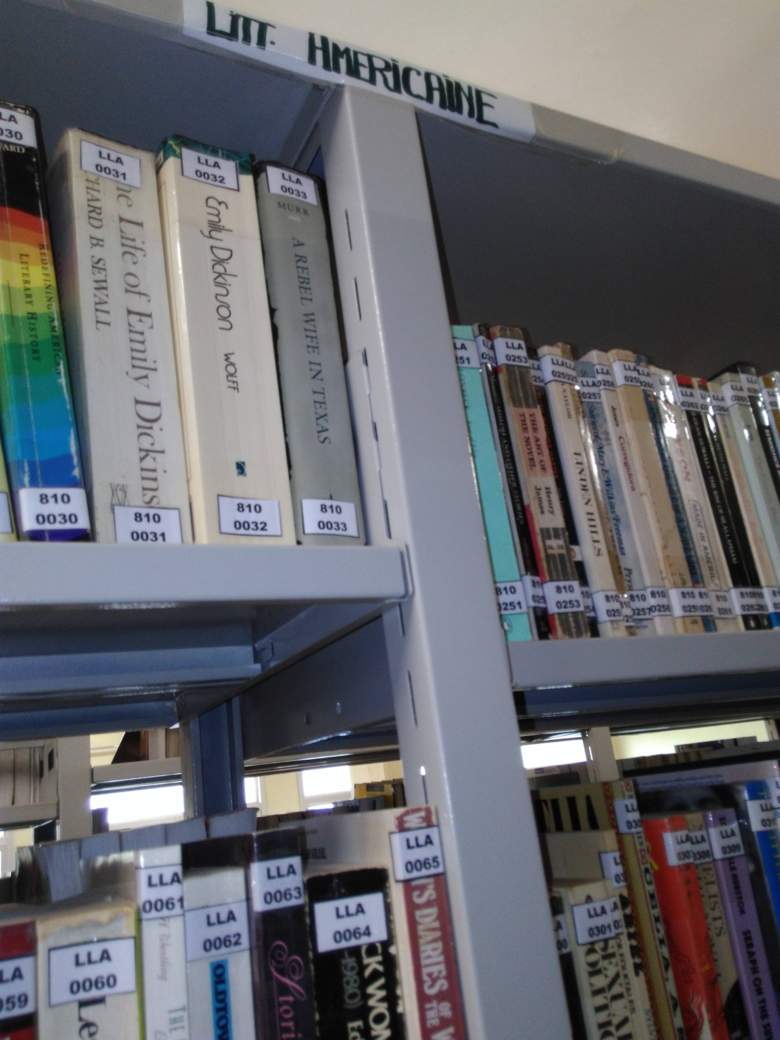
One afternoon, while studying with Professor Dr. Elvin Holt, Begedou described Lomé’s lack of resources. As Dr. Komi’s faculty advisors, Dr. Holt, along with Professor Steve Wilson, the former Campus Representative for the Fulbright program, felt compelled to help their colleague, so they decided to enlist the help of Sigma Tau Delta to arrange for a book drive. Sigma Tau Delta accepted donations from professors and students from 2014-2015, amassing more than six hundred books, which ranged from fiction to poetry to plays, as well as works of criticism and scholarship, written by a wide selection of English-speaking authors. After the collection, the books needed cataloguing and sorting, so that “the right genres ended up with the folks that needed them,” Laura Ellis-Lai, Senior Lecturer and Faculty Sponsor of Sigma Tau Delta, wrote in an email.
The University of Lomé lies just miles from the Pacific Ocean in the French-speaking West African country of Togo and enrolls about 40,000 students, similar to Texas State’s matriculation size. On Feb. 7, 2017, the University of Lomé finished the construction of their main library and held a reception to celebrate their expanded collection of resources. Although no representatives from Texas State University were able to attend the ceremony, the U.S. Ambassador to Togo, David Gilmour, presented the books on behalf of Texas State.
Dr. Begedou is confident that this collection will also enable his students at the University of Lomé an opportunity to enhance their knowledge of English and American literature. “It’s a great relief for students to know that when they go to the library, they can see books in American literature,” Dr. Begedou said. “Students can use them to aid their research for their dissertations.”
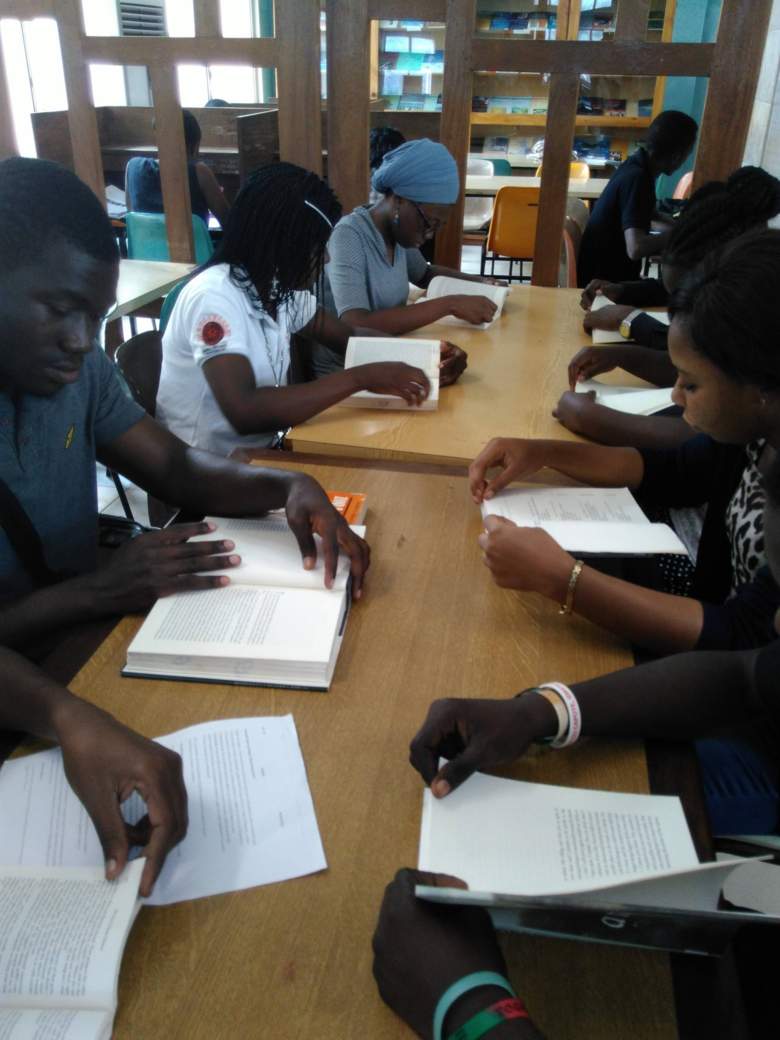
While these books have helped Togolese students, their university still needs additional resources. Students could benefit from more books and from visiting faculty from Texas State, even on two or three-week exchanges, Dr. Begedou said. Additionally, many of the professors at the University of Lomé have never traveled abroad, and so, “they are teaching something that they have not experienced,” Dr. Begedou said. He also suggests that students in Togo studying American literature might benefit from a study abroad at Texas State to learn American culture firsthand. He also envisions how this could help students improve their English, give them access to experienced faculty and extensive resources, and gain a global perspective by talking to the diverse people at Texas State.
Texas State University and the University of Lomé built a relationship that might lead to more collaboration in the future. Dr. Holt writes that he would like to “cultivate a mutually beneficial relationship with the University of Lomé that extends beyond providing books.”
Whatever an enduring relationship with the University of Lomé might entail, it will certainly involve participation from organizations like Sigma Tau Delta, faculty, and any student with unwanted books. Anyone who donates a book makes a significant impact in improving the education of another student in Togo and deepens the lasting positive impact of Texas State University on other parts of the world. As English Department Chair Dr. Dan Lochman writes: “There are unlimited opportunities to help, but we have to be willing to contribute the time and have the will to do so.”
by Gloria Russell, English major
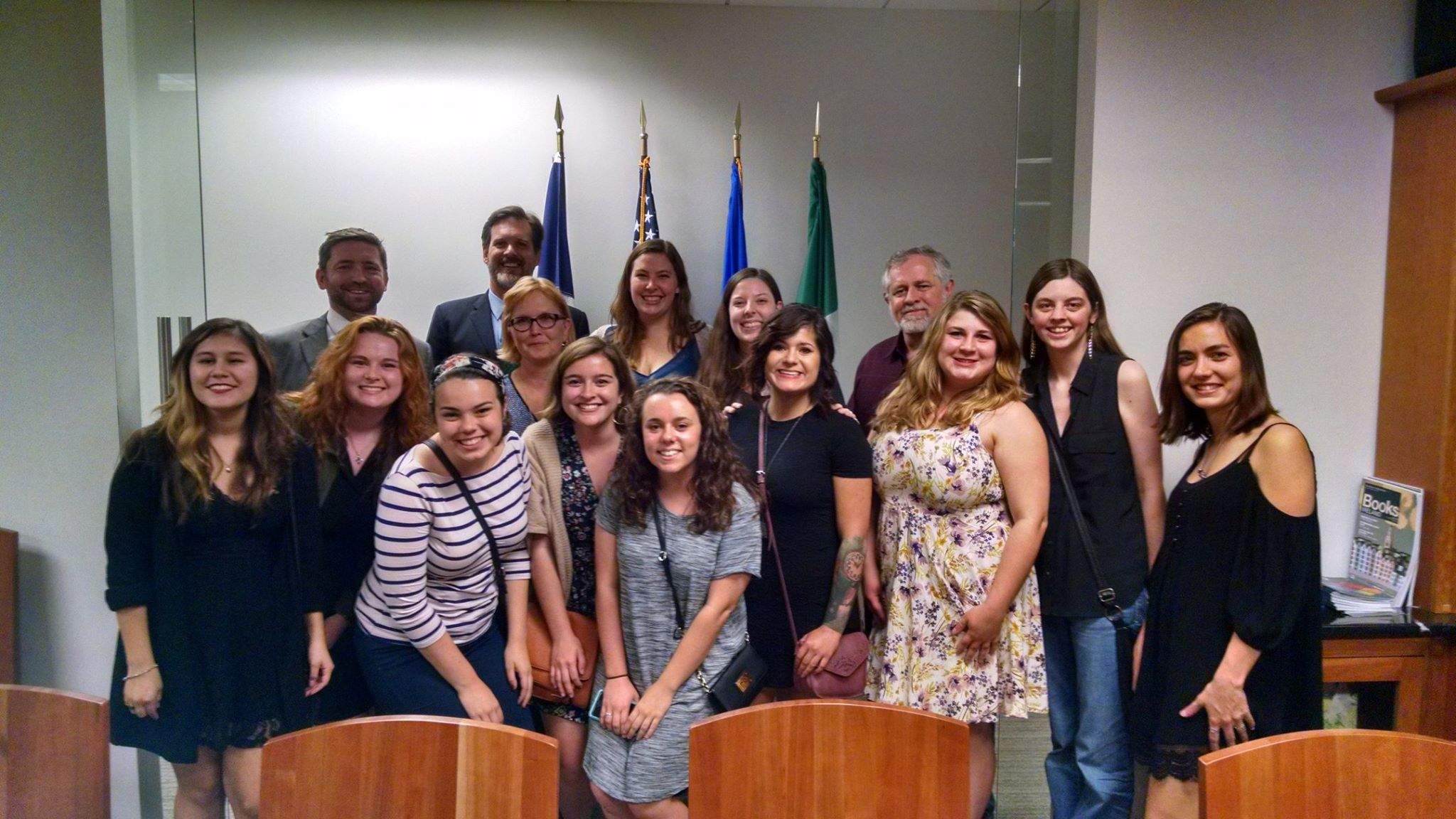 On October 28, The Austin office of the Irish Consulate hosted students from the 2016 Texas State in Ireland program for a reception and conversation on their five-week stay in Ireland this past summer. Consul General Adrian Farrell encouraged the students to share their impressions of Ireland, noting the growing cooperation between the Republic of Ireland and the Austin area, as well as the long history of the Irish in Texas and the southwest. Consul Farrell and the students were joined at the reception by Dr. Ryan Buck, Texas State’s Assistant Vice President for International Affairs. The Texas State in Ireland program, directed by English Department faculty members Nancy and Steve Wilson, has taken Texas State students to Cork, Ireland each summer since 1999, allowing more than 300 of them to explore a vibrant country that was home to the ancestors of millions of Americans. While in Ireland, the students from the 2016 program visited such cultural sites as Dublin; medieval Ross Castle, in Killarney; 10th-century Celtic settlements on the Dingle Peninsula; Gougane Barra Forest Park, in the Shehy Mountains of County Cork; and Great Blasket Island, a rugged outpost off the western coast. They also earned six hours of credit for completing advanced English courses in Travel Writing and Irish Literature. Steve Wilson noted at the reception that the program offers students the opportunity to be much more than travelers. They are encouraged to investigate the country and its people, discovering common ground with the Irish but also the important ways peoples of different cultures interact with and understand their world.
On October 28, The Austin office of the Irish Consulate hosted students from the 2016 Texas State in Ireland program for a reception and conversation on their five-week stay in Ireland this past summer. Consul General Adrian Farrell encouraged the students to share their impressions of Ireland, noting the growing cooperation between the Republic of Ireland and the Austin area, as well as the long history of the Irish in Texas and the southwest. Consul Farrell and the students were joined at the reception by Dr. Ryan Buck, Texas State’s Assistant Vice President for International Affairs. The Texas State in Ireland program, directed by English Department faculty members Nancy and Steve Wilson, has taken Texas State students to Cork, Ireland each summer since 1999, allowing more than 300 of them to explore a vibrant country that was home to the ancestors of millions of Americans. While in Ireland, the students from the 2016 program visited such cultural sites as Dublin; medieval Ross Castle, in Killarney; 10th-century Celtic settlements on the Dingle Peninsula; Gougane Barra Forest Park, in the Shehy Mountains of County Cork; and Great Blasket Island, a rugged outpost off the western coast. They also earned six hours of credit for completing advanced English courses in Travel Writing and Irish Literature. Steve Wilson noted at the reception that the program offers students the opportunity to be much more than travelers. They are encouraged to investigate the country and its people, discovering common ground with the Irish but also the important ways peoples of different cultures interact with and understand their world.